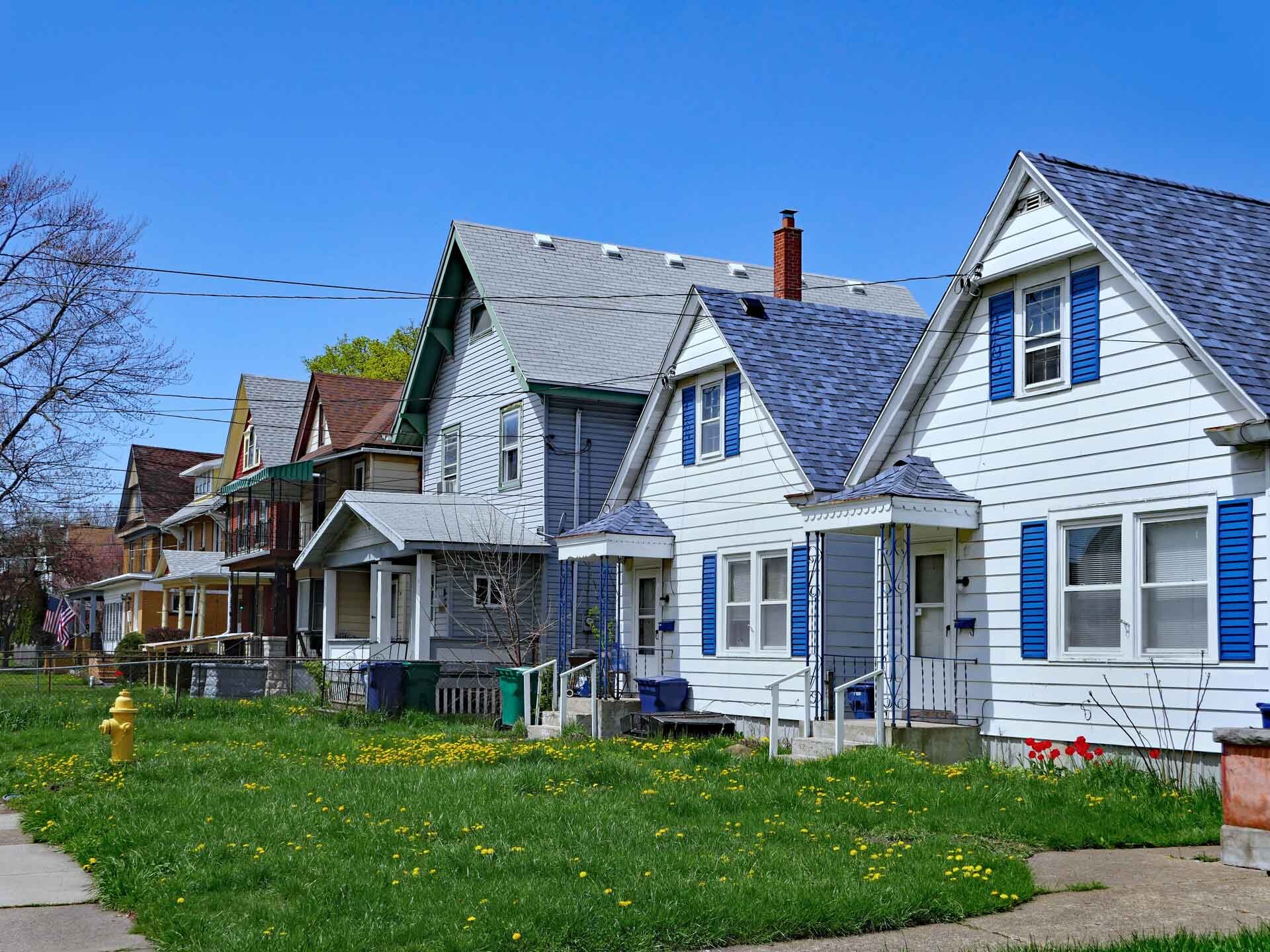New Jersey Foreclosure – We Buy Houses in NJ Facing Foreclosure
If you’re a homeowner in New Jersey facing foreclosure, you’re not alone. Across counties like Essex, Hudson, Bergen, Middlesex, and Union, foreclosure filings have been rising as interest rates, property taxes, and economic pressures make it harder for families to stay current on their mortgages. The good news is that foreclosure doesn’t have to be the end of the road. At We Buy NJ Real Estate, LLC, we specialize in helping homeowners avoid foreclosure by purchasing houses quickly, for cash, and in any condition.
The Challenges of Foreclosure in New Jersey
Foreclosure is more than just missing mortgage payments—it can impact your credit, your future housing opportunities, and even your peace of mind. In competitive markets like Jersey City, Newark, Elizabeth, and Paterson, lenders move quickly once payments fall behind. If action isn’t taken early, homeowners may find themselves facing court dates, sheriff sales, or even eviction.
Many sellers also discover unexpected costs when a foreclosure drags on:
- Legal fees from court proceedings
- Accumulating late fees and interest from the lender
- Property maintenance fines from local municipalities
- Stress and uncertainty of dealing with collections and threats of losing the home
Why Selling to a Cash Buyer is a Smart Option
Traditional home sales take time—and time is something most foreclosure situations don’t allow. Listing with an agent in Newark, Bayonne, or Hackensack could take months, and buyers often back out when they see the property needs work or financing delays occur. With foreclosure deadlines approaching, this just isn’t practical.
That’s where We Buy NJ Real Estate, LLC comes in. We provide:
- Fast, Fair Cash Offers – Get an offer in as little as 24 hours.
- Quick Closings – Sell your home in as little as 7 days, often before foreclosure is finalized.
- No Repairs Needed – We buy houses as-is, even if they’re damaged, vacant, or have code violations.
- No Agent Fees or Hidden Costs – Keep more money in your pocket when every dollar counts.
- Local Experience – With over 20 years in the NJ market and an A+ BBB rating, we know how to help sellers in every county.
Local Insight: NJ Housing Trends and Foreclosures
While neighborhoods like Hoboken and Montclair remain hot markets with high buyer demand, many distressed homes in Trenton, Irvington, and Camden are harder to sell through traditional listings. Rising taxes in areas like Union County and the cost of home repairs in older Essex County homes add to the pressure. By selling directly to a trusted cash buyer, homeowners can avoid foreclosure while still walking away with cash in hand.
Don’t Wait—Act Now to Avoid Foreclosure
The longer foreclosure drags on, the fewer options you have. Once the home goes to sheriff’s sale, you lose control over the outcome. That’s why so many homeowners across New Jersey—from Atlantic City to Morristown—trust We Buy NJ Real Estate, LLC to step in quickly and provide real solutions.
If you’re facing foreclosure and need to sell your house fast in New Jersey, call us today at (908) 320-7995 or fill out our online form. We’ll walk you through your options, give you a fair cash offer, and help you move forward without the stress of foreclosure hanging over your head.
If you’ve ever wondered, “Can I sell my home if it’s in foreclosure in New Jersey?” the answer is yes – and with the right partner, it can be straightforward. While facing potential home loss can be overwhelming, there are legitimate solutions available before foreclosure completes. Foreclosure occurs when homeowners fall significantly behind on mortgage payments and cannot recover financially. Since a mortgage represents a legal agreement between you and your lender, payment defaults eventually authorize the lender to auction your property to recover their investment. This situation can leave you without housing and with severe credit damage that may impact your financial future for years.
No one plans to receive that dreaded foreclosure notice. Yet according to a recent U.S. Census Bureau Household Pulse Survey (July 27 to Aug. 8, 2022), approximately 1 million Americans believed they were at risk of losing their homes. In New Jersey specifically, foreclosure rates continue to be among the highest nationwide. Foreclosure situations typically arise from several common circumstances:
- Job loss or significant income reduction
- Family changes like divorce or the passing of a spouse
- Overwhelming financial obligations including medical expenses or high-interest debt
- Relocation necessity before successfully selling your property
- Property damage from storms, flooding or other disasters common in New Jersey
If you’re facing any of these challenges, there’s still a path forward. As an A+ rated Better Business Bureau company serving New Jersey since 2003, We Buy NJ Real Estate, LLC specializes in purchasing distressed properties directly with cash. With nearly two decades of experience revitalizing communities throughout all counties of New Jersey, they’ve established a reputation for integrity and straightforward transactions. By eliminating real estate agents, banks, and complex financing processes, they provide fair cash offers within 24 hours and can close in as little as 7 days – or whenever works best for your situation.
What is Foreclosure?
Foreclosure begins when you fall behind on mortgage payments without a way to catch up. This often happens due to unexpected life events – perhaps you or your spouse lost employment, faced medical emergencies, or experienced another financial setback. While your income decreases, bills continue accumulating. Even after securing new employment, the mortgage arrears plus late fees can create an insurmountable debt. At this critical point, your lender has legal authority to initiate the foreclosure process, potentially forcing you from your New Jersey home.
How Long Can You Stay in Your New Jersey Home After Foreclosure Begins?
In New Jersey, foreclosure typically follows these key stages:
- Missed mortgage payments (typically 3-6 months)
- Public notice filing (lis pendens)
- Formal foreclosure proceedings
- Sheriff’s sale or auction
- Eviction process
New Jersey has one of the longest foreclosure timelines in the country, averaging 900-1,100 days from initial filing to completion. This is significantly longer than the national average of 857 days. The process follows judicial foreclosure requirements, meaning your lender must file a lawsuit to foreclose. During this period, you’ll receive formal notices, communications, and legal documents outlining your rights and options. This extended timeline provides homeowners valuable opportunity to explore alternatives with trusted professionals who understand the local market.
The Different Types of Foreclosure
Homeowners in New Jersey facing mortgage difficulties should understand the two primary foreclosure methods: non-judicial foreclosure and judicial foreclosure. Each process has distinct implications for your property rights, but both can ultimately result in losing your home without proper intervention.
What Is Non-Judicial Foreclosure?
Non-judicial foreclosure offers lenders a streamlined path that bypasses the court system, making it faster and more cost-effective for them. This process operates according to specific state laws. When your New Jersey mortgage includes a “power-of-sale” clause in the deed of trust, lenders can exercise this provision to reclaim and auction your property to recover the outstanding debt. While beneficial for lenders, this expedited process significantly limits your legal options to contest the foreclosure. In New Jersey, where property values have increased by nearly 15% in recent years, losing your home through this method can mean missing out on substantial equity.
What Is Judicial Foreclosure?
In New Jersey, which primarily uses judicial foreclosure, lenders must initiate a lawsuit and secure a court order before selling your property. You’ll receive official notification requiring your response. If you don’t answer or effectively challenge the lawsuit, the court typically rules in the lender’s favor by default, allowing the foreclosure to proceed. Should your home sell for less than your remaining mortgage balance, you may remain responsible for the shortfall through what’s legally termed a deficiency judgment – a particularly concerning outcome in New Jersey’s volatile real estate market.
Foreclosure auctions typically result in significantly reduced sale prices compared to traditional market transactions. According to New Jersey real estate data, foreclosed properties often sell for 30-40% below market value. Even if your home is in excellent condition and would command premium pricing in a normal sale, at auction it might fetch substantially less. This dramatic price difference can leave you with considerable debt even after losing your home. While judicial foreclosure provides more time and procedural protections, New Jersey’s process still averages 1,161 days – the longest in the nation – creating extended uncertainty and accumulating fees.
Get an offer today, sell in a matter of days.
Ready to break free from the looming threat of foreclosure? Reach out to a knowledgeable specialist at We Buy NJ Real Estate, LLC to explore your options and receive a fair cash offer for your property right now.
Fill out the form below to get started
How to Sell Your House Before Foreclosure in New Jersey
If you’re facing foreclosure in New Jersey, taking proactive steps can help you sell your home before auction. With New Jersey’s foreclosure rates among the highest in the nation, understanding your options is crucial. Here are several approaches, each with distinct timelines and considerations:

Hire A Real Estate Agent
Many homeowners initially consider working with a real estate agent. While agents can list your property on the MLS and coordinate showings, this traditional approach comes with significant costs—typically 3% to 6% in commission fees. For New Jersey homeowners already struggling with mortgage debt, sacrificing this portion of your sale proceeds can further compromise your financial situation.
The timeline presents another challenge for distressed properties. In New Jersey’s current market, even well-maintained homes can take weeks to sell, and closings typically require 30-45 days to complete. For homeowners facing imminent foreclosure, this extended timeframe often doesn’t align with the urgency of your situation.

Short Sale
When your mortgage exceeds your property’s value—a common situation in some New Jersey counties—a short sale might be worth considering. For instance, if you owe $250,000 on a home now valued at $200,000, you’ll need lender approval before proceeding. This requires demonstrating financial hardship through documentation like income statements, expense records, and hardship letters. Even with approval, you’ll still need specialized professionals whose fees further reduce your proceeds.
Lenders sometimes prefer short sales over foreclosures because they’re generally less expensive and time-consuming. However, the impact on your financial future remains significant. New Jersey residents who pursue short sales typically see credit scores drop by 100-150 points, with the negative mark persisting on credit reports for up to seven years, complicating future financing for vehicles, credit cards, or another home purchase.

Sell Your House AS-IS to A Cash Buyer
If time is extremely tight and foreclosure is looming, an alternative is to sell to a direct cash buyer. This option has grown more popular in recent years because it can help homeowners who need a swift sale. A reliable cash investor, such as We Buy NJ Real Estate, LLC in New Jersey, may offer several perks:
- Very fast closing time—often in a matter of days
- No commissions, fees, or hidden costs
- No repairs or staging required
- No need to wait on financing approval
By selling as-is, you could avoid losing your home at a distressing public auction and might even pull in enough money to stabilize your finances. Relieving yourself of mounting mortgage debt can bring the peace of mind you’ve been craving.
Can You Stop Foreclosure Once it Starts?
Getting a foreclosure notice can be terrifying, but there may be ways to halt the process if you act quickly. Look at the following potential solutions:
Clear Your Loan & Additional Fees
If you can somehow gather the funds to catch up on missed payments, you can often prevent the foreclosure from proceeding. Perhaps you could sell valuable items, borrow money from family or friends, or get help from a financial advisor who can organize your budget and find areas to free up cash. Each loan or form of aid comes with its own risks, so weigh these options carefully.
Consider Filing for Bankruptcy
Filing for bankruptcy is usually a last-ditch measure to stop foreclosure. Although it can pause the process for a while, it also has a serious downside: it remains on your credit report for up to seven years. During that time, getting new loans, renting a home, or applying for certain financial products becomes extremely difficult. Declaring bankruptcy involves strict legal steps and may require an attorney who focuses on bankruptcy law. Even if it keeps you from losing your house right away, the long-term effects are significant.
Explore the Homeowner Affordability and Stability Plan (HASP)
When your mortgage debt is sky-high compared to your income, the federal Homeowner Affordability & Stability Plan (HASP) could provide relief. This program is aimed at homeowners in danger of foreclosure because of insufficient income. HASP can help you modify your monthly payments so they’re more manageable. It’s worth checking if you qualify, because it can protect you from immediate foreclosure and buy you some time to find a better financial footing.
Related Articles
5 Ways the Foreclosure of Your New Jersey House Will Impact You in the Future
What Homeowners in New Jersey Can Expect During the Foreclosure Process
The Difference Between Pre-Foreclosure and Foreclosure for Homeowners in New Jersey
How to Sell Your House During Bankruptcy in New Jersey
Stopping the Foreclosure Process: A Guide for New Jersey Homeowners
Sell Your House Fast to a Cash Buyer
You might be ready to let go of your property rather than navigate foreclosure or complicated legal proceedings. If you don’t have the luxury of waiting 30 days or more for a typical sale to wrap up, or if a short sale feels too risky for your credit, selling quickly to a cash investor may be the answer. A dependable investor in your area who has a track record of fair transactions will come prepared with cash and the ability to close on your timetable. By opting for this choice, you can bypass court battles, eviction, and the harmful credit hit of a foreclosure auction.
Keep in mind that direct buyers generally pay a bit less than top market value. However, what you gain is speed: you can often finalize the deal before your lender gets any further in the foreclosure steps. This helps you avoid the dreaded auction, protecting your financial well-being and preventing the home from selling at a bargain-basement price that leaves you still owing money.
We Buy Houses in Foreclosure & Pre-foreclosure–
Get Your Offer Today!
Have you pictured the relief of stepping away from your property without foreclosure looming overhead? By reaching out to an experienced professional at We Buy NJ Real Estate, LLC, you can explore how to sidestep the drawn-out listing process and avoid further damage to your credit. Contact us today to learn more about this simple solution and secure a fair cash offer for your home right away.
Ready to Take the Next Steps?
If you’re asking yourself, “Can I sell my home if it’s in foreclosure in New Jersey?” take heart in knowing you have multiple avenues to explore. Every homeowner’s situation is unique, but by understanding the choices—from hiring a real estate agent or short sale specialist, to taking advantage of special programs, to selling directly to a cash investor—you can pick the path that suits your needs best. Foreclosure doesn’t have to be the end of the road. By making informed decisions and moving quickly, you can create a new beginning free from the stress of overwhelming debt. Contact us today!

